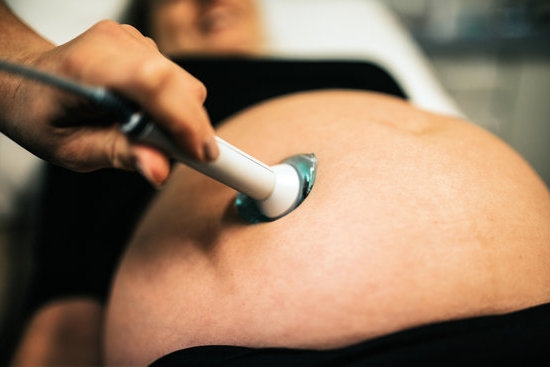When is a pregnancy viable? Understanding the concept of viability in pregnancy is crucial for expectant parents and healthcare providers.
Viability refers to the ability of a fetus to survive outside the womb, typically around 24 weeks gestation. In this article, we will explore the various aspects of viability in pregnancy, including early signs and symptoms, factors affecting viability, prenatal care, medical tests and screenings, lifestyle choices, potential risks and complications, as well as the importance of proper nutrition and self-care.
The early signs and symptoms of a viable pregnancy can vary from woman to woman. While some may experience typical symptoms such as morning sickness and fatigue, others may not have any noticeable signs at all. Understanding what constitutes a viable pregnancy can help expectant mothers discern between normal discomforts and potentially concerning issues during their first trimester.
Factors affecting the viability of a pregnancy are numerous and include maternal age, pre-existing health conditions, lifestyle choices, and genetic factors. It is important for expectant parents to be aware of these factors in order to make informed decisions that contribute to a healthy and viable pregnancy. Additionally, adequate prenatal care plays a critical role in ensuring the viability of a pregnancy by detecting any potential complications early on.
Early Signs and Symptoms of a Viable Pregnancy
When is a pregnancy viable? Understanding the early signs and symptoms of a viable pregnancy can help expectant mothers recognize the beginning stages of this crucial period. One of the earliest signs of a viable pregnancy is a missed menstrual period, which often prompts many women to take a home pregnancy test. Other common early symptoms include nausea, fatigue, breast tenderness, and frequent urination. These symptoms are caused by hormonal changes as the body begins to adapt to being pregnant.
In addition to these typical signs, some women may also experience light spotting or cramping in the early weeks, which can be mistaken for an impending period. It’s important for women to stay aware of their body’s signals and consult with a healthcare provider if they have any concerns about their pregnancy.
Another noticeable sign of viability is the presence of hCG (human chorionic gonadotropin) in the body, which can be detected through blood or urine tests. A rise in hCG levels usually indicates a healthy and viable pregnancy. It’s important for expecting mothers to seek prenatal care as soon as they suspect they are pregnant, so that healthcare professionals can monitor their progress and confirm the viability of their pregnancy.
| Early Signs | Symptoms |
|---|---|
| Missed Period | Nausea |
| Fatigue | Breast Tenderness |
| Frequent Urination | Light Spotting/Cramping |
Factors Affecting the Viability of a Pregnancy
Maternal Age and Health
One of the key factors that can affect the viability of a pregnancy is the age and overall health of the mother. Women who are older, typically above the age of 35, may face a higher risk of pregnancy complications, including miscarriage. Additionally, women with pre-existing health conditions such as diabetes, high blood pressure, or obesity may also have a higher risk of experiencing issues that could affect the viability of their pregnancy.
Lifestyle Factors
Certain lifestyle factors can also play a significant role in determining the viability of a pregnancy. For example, smoking, excessive alcohol consumption, and drug use can all increase the risk of miscarriage and other complications during pregnancy. Poor nutrition and lack of physical activity can also impact the overall health of the mother and potentially affect the viability of the pregnancy.
Previous Pregnancy History
A woman’s previous pregnancy history can also influence the viability of her current pregnancy. Women who have previously experienced miscarriages or complications during pregnancy may be at a higher risk for similar issues in future pregnancies. It is important for women with a history of pregnancy loss to work closely with their healthcare provider to ensure proper monitoring and support throughout their current pregnancy journey.
It is crucial for expecting mothers to be aware of these factors that can affect the viability of their pregnancy and to take proactive steps to address any potential concerns in collaboration with their healthcare provider. By understanding these factors, women can make informed decisions and take necessary precautions to support a healthy and viable pregnancy.
The Importance of Prenatal Care for a Viable Pregnancy
Prenatal care is crucial for the well-being of both the mother and the developing fetus. It plays a key role in ensuring the viability of a pregnancy, as it allows healthcare providers to monitor the health of both the mother and the baby, provide necessary interventions or treatments, and offer guidance on maintaining a healthy pregnancy. Additionally, prenatal care also helps in early detection and management of any potential complications that may arise.
Early Prenatal Care
Seeking prenatal care early in pregnancy is essential for optimizing the chances of a viable pregnancy. The first trimester is a critical time for fetal development, and early prenatal visits can help identify any risk factors or issues that need to be addressed. During these initial visits, healthcare providers typically conduct a thorough assessment of the mother’s health history, perform physical exams, and order essential tests to establish a baseline for monitoring throughout the pregnancy.
Regular Monitoring and Screening
Throughout the course of prenatal care, mothers can expect regular check-ups to assess their overall health and monitor fetal growth and development. Healthcare providers may also recommend various screenings and diagnostic tests to evaluate the viability of the pregnancy, detect any abnormalities or genetic conditions, and identify potential risk factors for complications. These screenings are crucial for ensuring that appropriate interventions are provided when necessary, ultimately supporting a viable pregnancy.
In summary, prenatal care is essential for promoting the viability of a pregnancy. By seeking early and regular prenatal care, mothers can receive vital support in ensuring a healthy outcome for both themselves and their babies. From monitoring fetal development to screening for potential complications, proper prenatal care plays a crucial role in nurturing a viable pregnancy.
What to Expect During the First Trimester of a Viable Pregnancy
During the first trimester of a viable pregnancy, expect significant changes in your body as it adapts to support the developing fetus. One of the earliest signs of a viable pregnancy is a missed period, which prompts many women to take a pregnancy test. As the weeks progress, you may also experience symptoms such as fatigue, nausea, tender breasts, and frequent urination. These early signs are due to hormonal changes and the rapid growth of the embryo.
In addition to physical symptoms, you may also notice emotional changes during the first trimester. Mood swings, anxiety, and excitement are common as you come to terms with the reality of being pregnant. It is important to seek support from your healthcare provider and loved ones during this time.
As your pregnancy progresses through the first trimester, you will likely have regular prenatal appointments with your healthcare provider. These visits may include discussions about your medical history, genetic screenings, and tests to confirm the viability of the pregnancy. Your provider will also offer guidance on maintaining a healthy lifestyle and managing any discomfort or concerns that arise during this crucial stage of development.
It’s essential to be vigilant about taking care of yourself during this time by eating well-balanced meals, staying hydrated, getting plenty of rest, and avoiding harmful substances such as alcohol and tobacco. You should also discuss any medications or supplements you are taking with your healthcare provider to ensure they are safe for both you and your developing baby.
By following these guidelines and seeking prompt medical attention for any concerning symptoms, you can support the viability of your pregnancy and lay a strong foundation for a healthy outcome.
Medical Tests and Screenings to Determine the Viability of a Pregnancy
When is a pregnancy viable is a question often asked by expectant parents. Determining the viability of a pregnancy involves various medical tests and screenings that are crucial for ensuring the health and well-being of both the mother and the developing fetus. Here are some commonly recommended medical tests and screenings to determine the viability of a pregnancy:
1. Blood Tests: A series of blood tests are typically conducted to check for hormonal levels, blood type, and Rh factor. These tests also screen for infectious diseases such as HIV, syphilis, hepatitis B, and rubella.
2. Ultrasound Exams: Ultrasounds are used to confirm the viability of a pregnancy by detecting the heartbeat and determining the gestational age. It also helps in identifying any potential complications such as ectopic pregnancy or miscarriage.
3. Genetic Screening: Genetic screening may be recommended for certain individuals based on family history or maternal age. This can help identify any genetic disorders or chromosomal abnormalities in the fetus.
4. Maternal Serum Screening: This blood test is performed to assess the risk of chromosomal abnormalities such as Down syndrome in the developing fetus.
These medical tests and screenings play a crucial role in determining the viability of a pregnancy by identifying any potential risks or complications early on. It’s important for expectant parents to consult with their healthcare provider to understand which tests are necessary for monitoring the health and development of their baby.
How to Support a Viable Pregnancy Through a Healthy Lifestyle
Maintaining a healthy lifestyle is crucial for supporting a viable pregnancy. This includes making smart choices when it comes to diet, exercise, and overall wellness. As soon as a woman discovers she is pregnant, it’s essential to start making positive changes to support the health of both herself and her developing baby.
One of the most important aspects of maintaining a healthy lifestyle during pregnancy is eating a balanced and nutritious diet. This means consuming plenty of fruits, vegetables, whole grains, lean proteins, and healthy fats. It’s also important to avoid processed foods high in sugar, salt, and unhealthy fats. Additionally, staying hydrated by drinking plenty of water is key for overall health and can also help prevent common pregnancy complaints such as constipation and dehydration.
Regular physical activity is another vital component of supporting a viable pregnancy through a healthy lifestyle. Exercise can help reduce stress, improve sleep, and boost overall mood-all of which are beneficial during pregnancy. It’s important for pregnant women to engage in safe forms of exercise such as walking, swimming, prenatal yoga, or low-impact aerobics under the guidance of a healthcare provider.
Lastly, avoiding harmful substances such as tobacco smoke and alcohol is imperative for supporting the viability of a pregnancy. Both smoking and excessive alcohol consumption have been linked to an increased risk of complications and birth defects. Therefore, it’s essential for pregnant women to abstain from these harmful substances for the health of their developing baby. By making these lifestyle changes early on in pregnancy, women can set themselves up for a healthier journey towards delivery.
The Risk of Complications and Miscarriage in a Viable Pregnancy
Complications and miscarriage are common concerns for women during pregnancy. When is a pregnancy viable? A pregnancy is considered viable when the fetus has reached a stage where it can survive outside the womb, typically around 24 weeks gestation. However, even after this point, there are still risks of complications and miscarriage that expectant mothers should be aware of.
Some of the most common complications in a viable pregnancy include gestational diabetes, preeclampsia, and preterm labor. Gestational diabetes can develop in pregnant women who have never had diabetes before, causing high blood sugar levels that can affect the health of both the mother and baby.
Preeclampsia is characterized by high blood pressure and signs of damage to another organ system, often occurring after 20 weeks of pregnancy. Preterm labor, on the other hand, puts the baby at risk of being born before they have fully developed.
Miscarriage is also a concern for many expectant mothers. It is the loss of a pregnancy during the first 20 weeks. The risk of miscarriage decreases significantly after the first trimester, but it is still a possibility throughout the entire pregnancy.
| Common Complications | Risk Factors |
|---|---|
| Gestational diabetes | Poor diet and lack of exercise |
| Preeclampsia | High blood pressure and organ damage |
| Preterm labor | Smoking, drug use, or certain pregnancies such as twins or triplets |
It’s important for pregnant women to be aware of these risks and stay in regular communication with their healthcare provider to monitor their health and their baby’s development. Proper prenatal care helps detect any potential issues early on, increasing the chances of effectively managing or treating them. Staying informed about potential risks allows expectant mothers to take necessary precautions and adjust their lifestyle if needed to ensure a healthy outcome for both themselves and their baby.
Support from family members and loved ones can also make a difference in reducing stress levels during pregnancy which can contribute to better overall health outcomes. Acknowledging these potential complications while also focusing on self-care and positive lifestyle choices will help mitigate some of these risks associated with a viable pregnancy.
Ensuring the Viability of a Pregnancy Through Proper Nutrition and Self-Care
Ensuring the viability of a pregnancy involves taking care of your body and providing it with the necessary nutrients to support the development of the growing fetus. Proper nutrition during pregnancy is crucial for both the mother and the baby, and can contribute to a healthy and viable pregnancy. Here are some key ways to ensure the viability of a pregnancy through proper nutrition and self-care:
1. Eat a balanced diet: Consuming a variety of fruits, vegetables, lean proteins, whole grains, and dairy products can provide essential nutrients such as folic acid, iron, calcium, and protein that are critical for fetal development.
2. Stay hydrated: Drinking an adequate amount of water is important during pregnancy to support the increased blood volume, amniotic fluid, and overall bodily functions.
3. Take prenatal vitamins: Prenatal vitamins are designed to fill in any nutritional gaps in your diet and ensure that you and your baby are getting all the necessary vitamins and minerals. It is especially important to take folic acid to help prevent birth defects of the brain and spine.
4. Get plenty of rest: Pregnancy can be physically exhausting, so it’s important to listen to your body and get enough sleep. Resting when needed can help reduce stress and contribute to a healthy pregnancy.
5. Manage stress: High levels of stress can have negative effects on pregnancy outcomes. Practice relaxation techniques such as meditation or yoga to help manage stress levels.
6. Exercise regularly: Engaging in low-impact physical activity such as walking or swimming can help maintain a healthy weight, reduce discomforts associated with pregnancy, improve mood, and promote better sleep.
By incorporating these self-care practices into your routine and maintaining proper nutrition throughout your pregnancy, you can greatly increase the likelihood of having a viable pregnancy. Remember that every pregnancy is different, so it’s important to consult with a healthcare provider for personalized guidance on nutrition and self-care during this special time in your life.
Conclusion
In conclusion, the concept of viability in pregnancy encompasses a range of factors that contribute to the likelihood of a successful and healthy gestation. Understanding the early signs and symptoms, as well as taking into consideration the factors that may affect viability, can help individuals make informed decisions about their prenatal care. It is crucial to prioritize proper nutrition, medical tests, and self-care to ensure the viability of a pregnancy.
Prenatal care plays a significant role in nurturing and celebrating a viable pregnancy. Regular check-ups with healthcare providers, medical tests, and screenings can help monitor the progress of the pregnancy and detect any potential complications early on. Additionally, adopting a healthy lifestyle that includes regular exercise, adequate rest, and stress management can contribute to the overall well-being of both the expectant mother and baby.
Despite the risk of complications and miscarriage in any pregnancy, taking proactive measures to support viability through proper nutrition and self-care can significantly improve the chances of a successful outcome. Ultimately, embracing a viable pregnancy with knowledge, support from healthcare professionals, and a focus on overall wellness can lead to a positive experience for expectant parents.
When is a pregnancy viable is an important question many individuals may have when beginning their journey towards parenthood. By being proactive in seeking information and proper care, they can increase their chances of nurturing and celebrating this joyous occasion to its fullest potential.
Frequently Asked Questions
At What Week Is a Fetus Viable?
A fetus is typically considered viable around the 24th week of gestation, although this can vary depending on various factors such as the overall health of the mother and the specific development of the fetus.
What Is the Youngest Baby to Survive?
The youngest baby to survive was Amillia Taylor, who was born at just 21 weeks and 6 days gestation. She faced numerous health challenges but ultimately survived and thrived, setting a record for premature births.
What Are the Odds of Survival at 28 Weeks?
The odds of survival for a baby born at 28 weeks gestation have greatly increased in recent years due to advances in medical technology and neonatal care. Generally, the chances of survival at 28 weeks are quite high, with many babies going on to live healthy lives with proper medical intervention and support.

Welcome to my fertility blog. This is a space where I will be sharing my experiences as I navigate through the world of fertility treatments, as well as provide information and resources about fertility and pregnancy.



